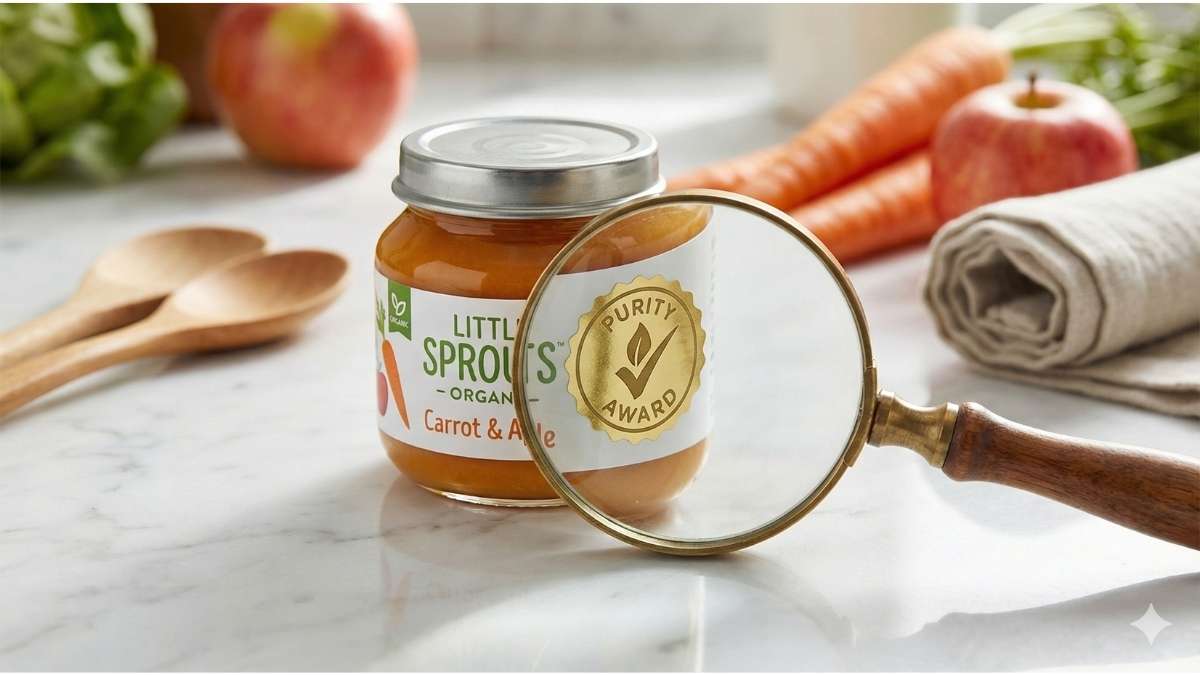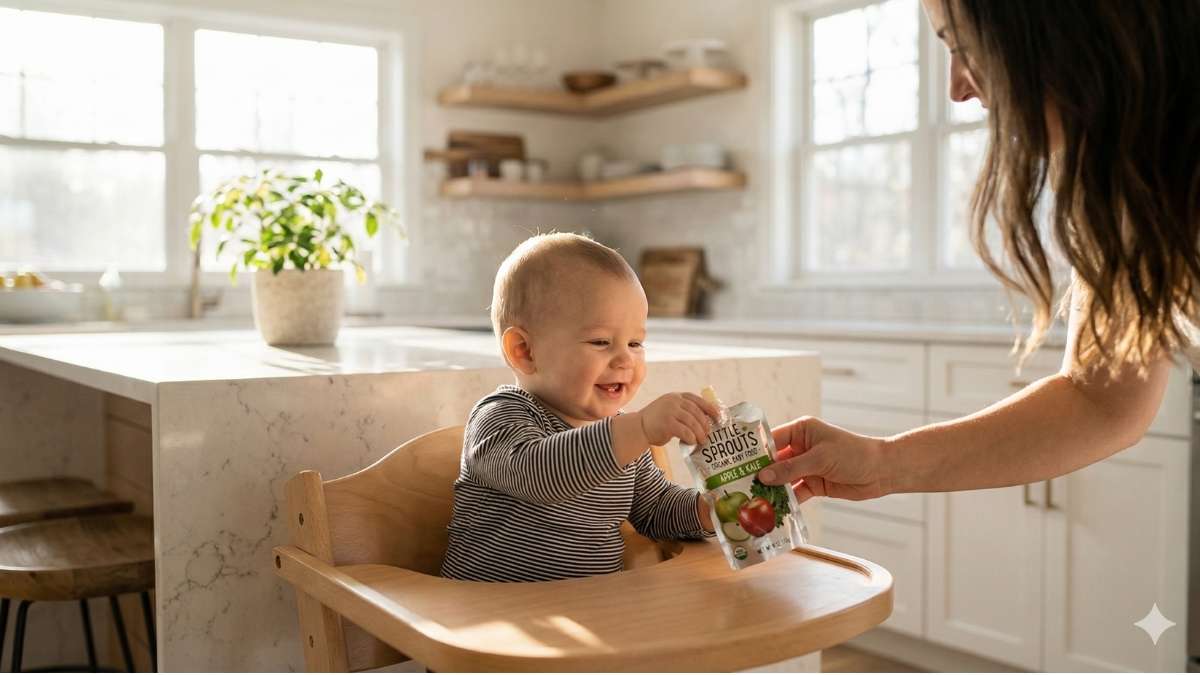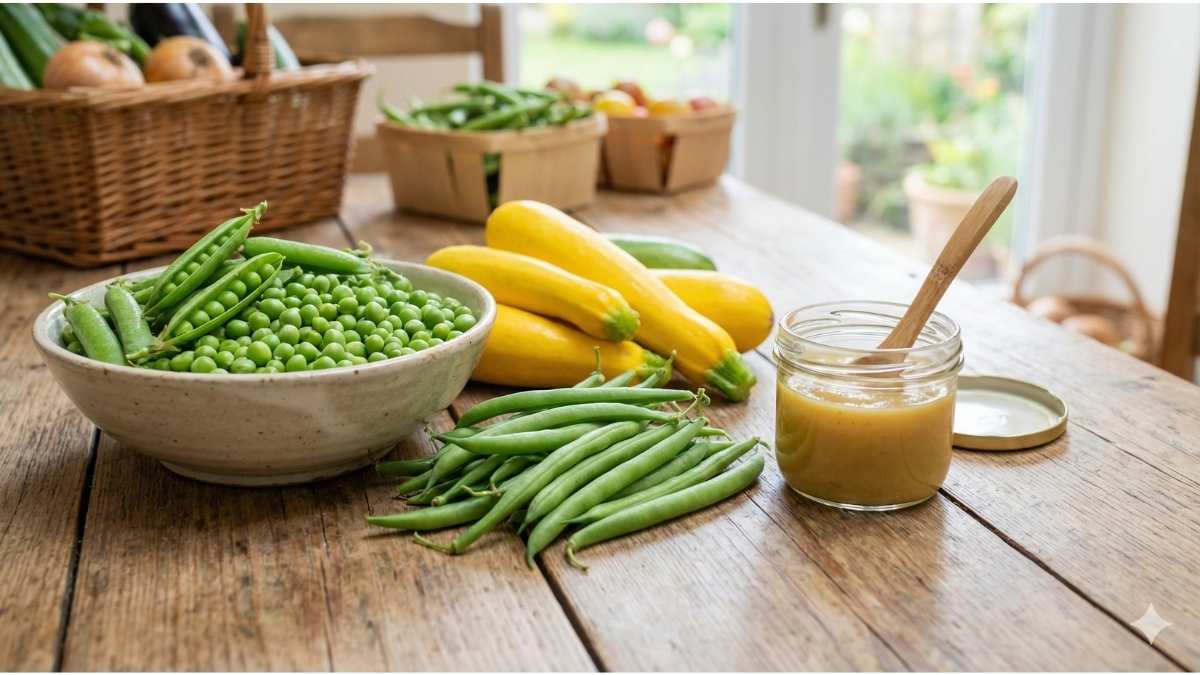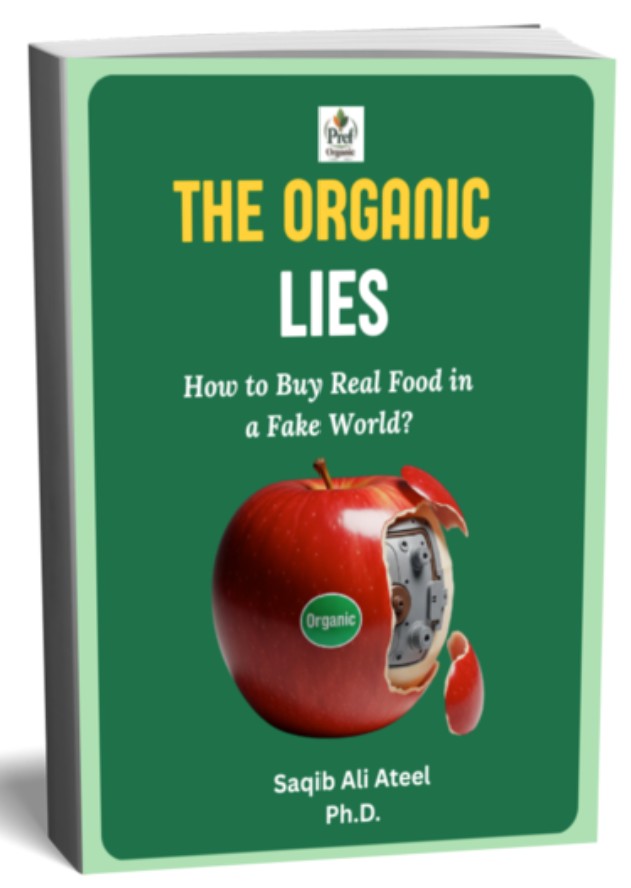The Ultimate Safety Audit: Ranking the Safest Organic
Baby Food Brands Heavy Metals Tested and Expert Verified ✅
Let's be honest. You picked organic for one reason: safety. You wanted a pure start, free from pesticides and GMOs. That is the best kind of love, the fiercely protective kind.
But then you saw the headlines. Heavy metals—arsenic, lead, cadmium—hiding even in organic baby food? It feels like a total betrayal. I get it. You feel blindsided and anxious. Finding the actual Safest Organic Baby Food Brands with Heavy Metals tested feels like searching in the dark.
As a PhD student who grew up on an organic farm, I’ve been wrestling with this same problem. My family's Peace of Mind matters too. Let's cut through the confusion together. We don't just need the organic seal. We need verifiable purity. This guide is your roadmap to getting your Confidence back and feeling genuine relief.
Parental Peace of Mind: Key Safety Action Steps
- 🛡️ Beyond the Seal: Understand that the USDA Organic seal certifies the farming process, not the final product's purity. It does not account for environmental contaminants like heavy metals in the soil.
- 🏆 The New Gold Standard: Look for the Clean Label Project Purity Award. This independent verification tests for over 400 contaminants, offering a higher safety standard than the USDA seal alone.
- ✅ Trusted Brand Choices: Prioritize transparent brands that share their testing data. Top contenders for safety include Once Upon a Farm, Cerebelly, and Serenity Kids.
- 🔄 Smart Rotation Strategy: Reduce cumulative exposure by rotating ingredients. Limit high-risk foods like rice and root vegetables, and embrace variety with low-risk options like squash and green beans.
I. The Purity Paradox: Why "Organic" Is Not
Enough for Safety
You chose organic. Great job! That's the crucial first step. For you, the "Proactive Protector," understanding one key difference changes everything: the difference between the organic process and the product purity.
The Critical Flaw of the USDA Organic Seal
Growing up on the farm, I saw firsthand how much better food grows in healthy soil. The USDA seal is non-negotiable. It’s a legally enforced guarantee of the farming process. It guarantees what wasn't added, like synthetic chemicals.
But here is the major catch, the part that causes so much anxiety: The seal certifies the farm, not the final jar of food. It was never designed to certify the purity of the final product against environmental contaminants.
Think of our land as an old sponge. Organic farming stops new pollution. But it cannot absorb all the lead from old gas or the arsenic from historical farming that’s already been in the soil for decades. These metals are natural—they are in the dirt. When a plant drinks water, it drinks those trace metals too. That’s the real Trustworthiness gap we need to close.
Why Your Baby Is Uniquely Vulnerable
The presence of heavy metals—Arsenic, Lead, Cadmium, and Mercury—is a global problem that affects all farming. But my research as a PhD Scholar suggests your instinct to be fiercely protective is scientifically sound.
Why are babies more sensitive?
- They Absorb More. A baby’s small digestive system absorbs toxins more readily than an adult’s.
- They Eat Proportionally More. They consume a huge amount of food relative to their tiny body weight. That means higher proportional exposure.
- Their Brains Are Building. These neurotoxins are linked to developmental delays and behavioral issues. We must minimize this exposure immediately.
The answer isn't to stop feeding healthy foods. It's time to demand better testing from the brands you trust.
II. The New Gold Standard for Purity Verification 🔬
 The USDA seal certifies the farm, but the Purity Award certifies the final jar against hidden heavy metals.
The USDA seal certifies the farm, but the Purity Award certifies the final jar against hidden heavy metals.If the USDA seal is just the start, how do we find true Purity? We look for the brands that go the extra mile to prove it.
The Clean Label Project Purity Award
This is your ultimate tool for shopping confidently. The Clean Label Project (CLP) is a non-profit that provides the actionable, verifiable proof parents need. They test for contaminants that brands aren't required to list.
My academic brain respects their rigorous process:
1. They Shop Off the Shelf. The CLP buys products just like you do. This ensures they test the exact jar or pouch that ends up in your kitchen.
2. Gold-Standard Testing. Products are sent to independent labs. They test for over 400 contaminants, including all four toxic heavy metals, plus pesticides and plastics.
3. The Purity Award. Only the top 33%—the cleanest products—earn this award.
If a product has this award, it is a clear, easy-to-spot signal of a brand's deep commitment to Safety that moves beyond basic organic requirements.
The Red Flag: Lawsuits and Lack of Transparency
When looking for the safest organic baby food brands heavy metals tested, we have to look at their track record.
Companies currently fighting lawsuits over heavy metals—like Gerber, Earth's Best, Beech-Nut, and Plum Organics—have lost a massive amount of parental Trustworthiness.
For example, Gerber is facing numerous mass torts related to high levels of arsenic, lead, and cadmium in its foods. Other major brands like Plum Organics and Walmart’s Parents’ Choice refused to cooperate with congressional investigations.
This failure of transparency is a major red flag. If a brand won't show the data, it's impossible to feel that Confidence.
III. The PrefOrganic Purity Scorecard: The Safest
Choices
 choosing brands with verifiable purity transparency allows you to feed your child with confidence, not anxiety
choosing brands with verifiable purity transparency allows you to feed your child with confidence, not anxietyThis ranking focuses on brands with the highest verifiable Purity and Transparency. Look for the "Purity Award" as your guide.
The *preforganic* Purity Scorecard: Safest Brands 🛡️
| Brand Name 🥇 | Purity Verification & Safety Profile 🔬 | My Trusted Friend Takeaway ✨ |
|---|---|---|
| Once Upon a Farm | Certified organic and the first baby/kids' food brand to receive the Clean Label Project Purity Award. Uses cold-pressure processing. ✔️ | This is my top pick for pouches! The cold-pressed method keeps things fresh, and the Purity Award gives total Confidence. |
| Cerebelly | Founded by a neurosurgeon. Another Clean Label Project Purity Award winner. They share test results by lot code—the ultimate in Trustworthiness. 🧠 | Great for analytical parents. They focus on boosting specific nutrients alongside safety. Lot code transparency is fantastic! |
| Serenity Kids | Purity Award winner. Focuses on low-sugar, high-fat purees with grass-fed meats. Committed to regenerative agriculture (super Ethical Sourcing). 🚜 | They actively avoid high-risk ingredients like rice and focus on healthy fats. This brand is prioritizing purity and long-term development. |
| Happy Baby Organics | Many of their Clearly Crafted pouches have earned the Clean Label Project Purity Award. They are very accessible for retail shopping. 🛒 | A great, reliable choice for everyday organic purees. They are accessible, and their third-party testing offers a necessary layer of Safety. |
Necessary Caution for High-Volume Brands
These brands are widely available, but they require you to be a highly selective shopper:
- Gerber Organic: They have some CLP certifications, but the brand is actively defending mass torts over heavy metals. Be extra vigilant. Avoid their high-risk rice products entirely.
- Earth's Best Organic: Their parent company, Hain Celestial, is facing class-action lawsuits over misleading purity claims. Avoid their high-risk items, such as rice- and oat-based cereals, which tested positive for contamination.
IV. Your Action Plan: Converting Anxiety into Purity 🧠
The anxiety surrounding the comparison of organic baby food brands ' purity is valid. Let's use that energy to make smart, deliberate choices! As a farmer, I know that Diversity is the greatest path to health.
1. Smart Rotation for High-Risk Ingredients (The Farmer’s
Insight)
We can't eliminate healthy foods, but we can manage exposure. We call this Rotation on the farm. It minimizes cumulative exposure to any single contaminant. This is how you achieve an organic baby food with low heavy metals.
Smart Rotation: Minimizing Heavy Metal Risk 🔄
| High-Risk Food ⚠️ | Why It’s Risky 🔬 | Action Plan: Rotation is Key ✅ |
|---|---|---|
| Rice 🍚 | It’s an arsenic magnet. It draws the metal up from the soil quickly. Rice cereal and puffs are the highest risk. | Vary the Grains: Avoid daily reliance. Rotate through organic barley, fortified oats, and quinoa options instead. Limit that cumulative arsenic hit. |
| Root Vegetables 🥕 | Carrots and sweet potatoes are wonderful, but they grow in the dirt. They readily absorb lead and cadmium. | Embrace the Rainbow: Focus on above-ground veggies like squash, peas, and green beans. When you do use root veggies, you can peel them to reduce surface contamination. |
| Fruit Juices 🥤 | Apple and grape juices frequently test high for lead and arsenic, possibly due to processing. | Water is Best: Avoid juice for infants. Offer whole, cut fruit instead, which retains fiber and is much lower in metals. Limit juice for toddlers severely. |
Remember: Diversity is the safest approach. Never let a single food dominate your baby's diet.
2. Prioritize Ethical Sourcing and Transparency
When you choose organic, you are making a Long-term Investment in your child and the planet. Look for brands doing more than the bare minimum:
- Look Beyond Organic: Seek companies using Demeter-quality grains (stricter than USDA) or practicing regenerative agriculture. This is the definition of Ethical Sourcing.
- Ditch Ambiguous Claims: Be wary of terms like "all-natural" or "100% natural ingredients" without the certified organic label. These are often marketing fluff that don't meet rigorous standards.
In my own home garden, I know that great ingredients come from great soil. Brands that invest in clean sourcing regions—far from industrial contamination—are protecting your baby from the very beginning.
V. Conclusion: Your Confident, Informed Choice
The world of baby food is complicated, but you don't have to feel helpless.
You now understand the complex challenge posed by heavy metals. You also have a powerful, actionable tool: the Clean Label Project Purity Award and the Transparency requirement.
By demanding verification, minimizing high-risk ingredients, and prioritizing the Safest Organic Baby Food Brands Heavy Metals tested, you are setting a new standard. You are making informed choices that will nourish your child for a lifetime, giving you genuine Peace of Mind. Shop smart, focus on Purity, and trust your role as the Proactive Protector.

Meet Saqib
Saqib Ali Ateel is a PhD Scholar by training and a "student of the soil" by nature. He combines deep research, hands-on farming wisdom, and agricultural systems supervision to reveal what’s really on your plate. His mission is simple: to help your family navigate the food industry's complexity so you can eat cleaner, safer, and smarter.
Once Upon a Farm Clean Label Review
Cerebelly Baby Food Heavy Metals
Happy Baby Organics Purity and Safety Review

